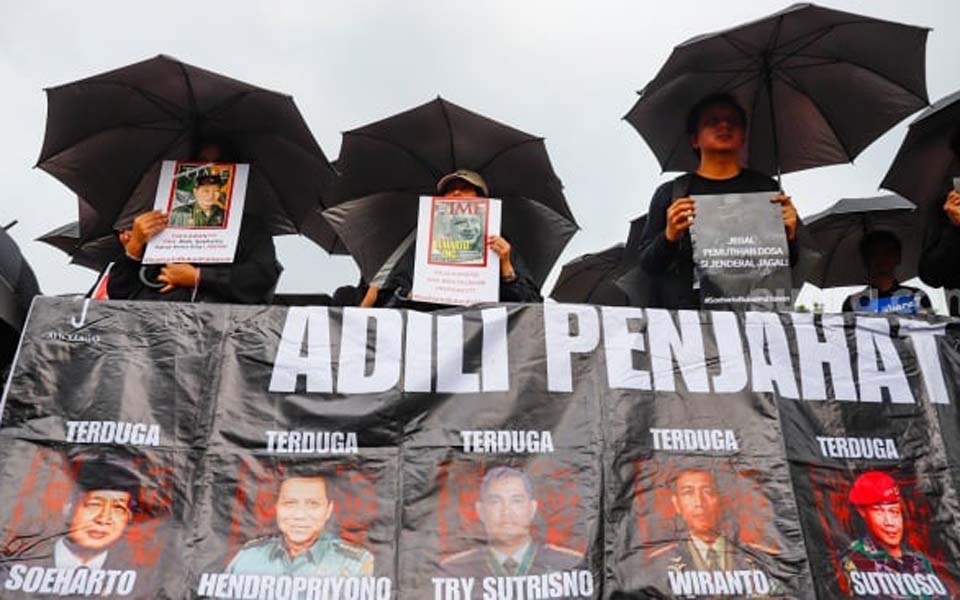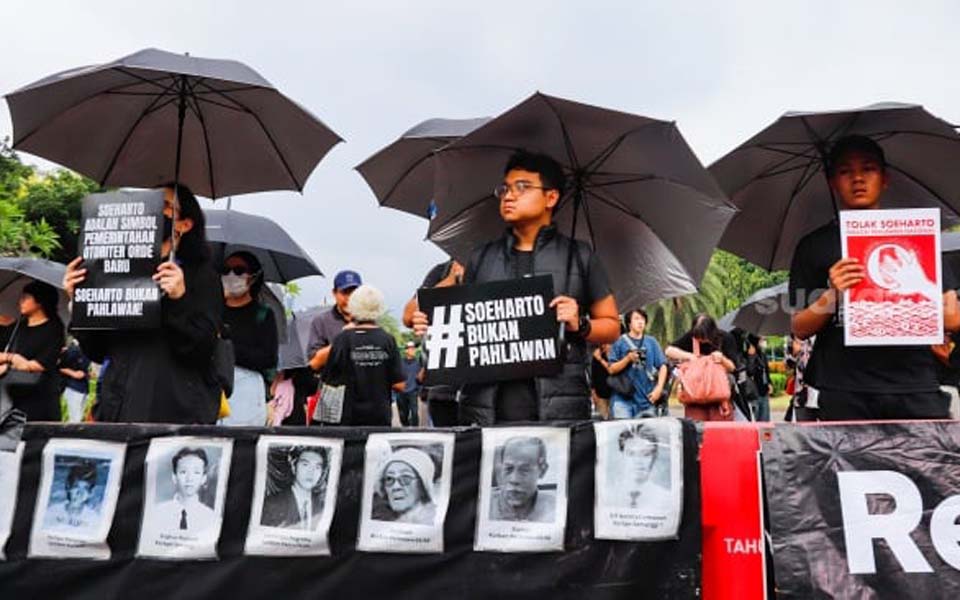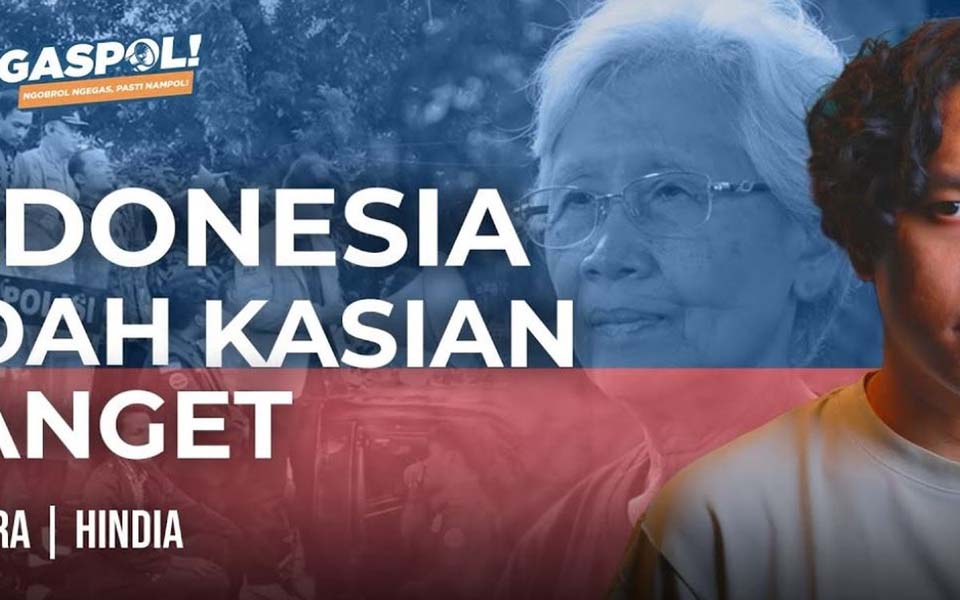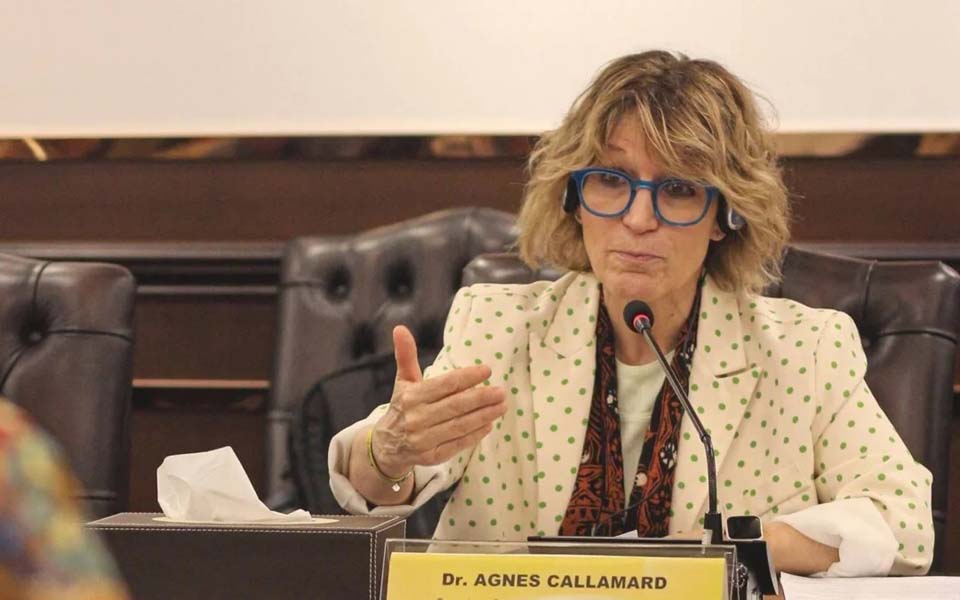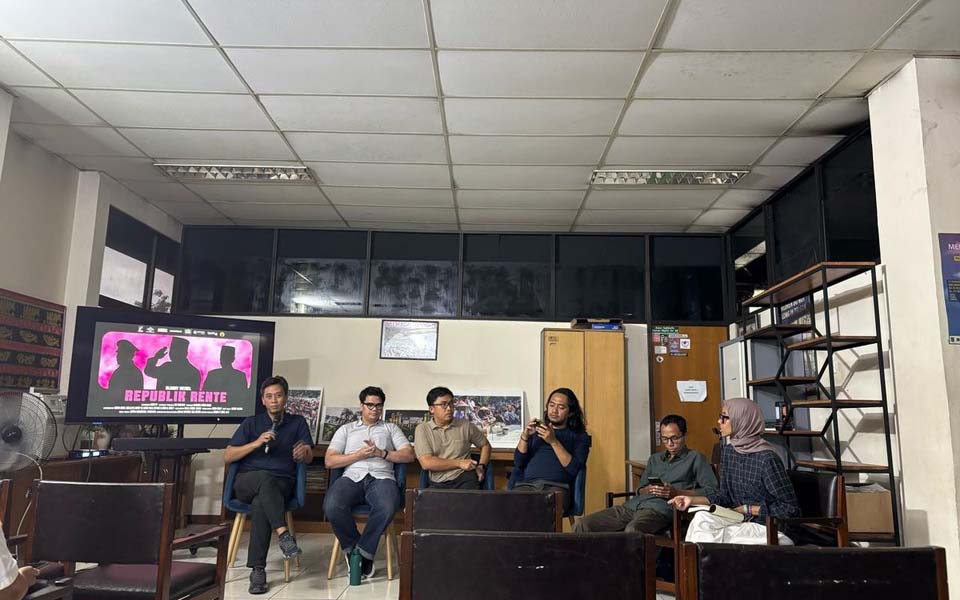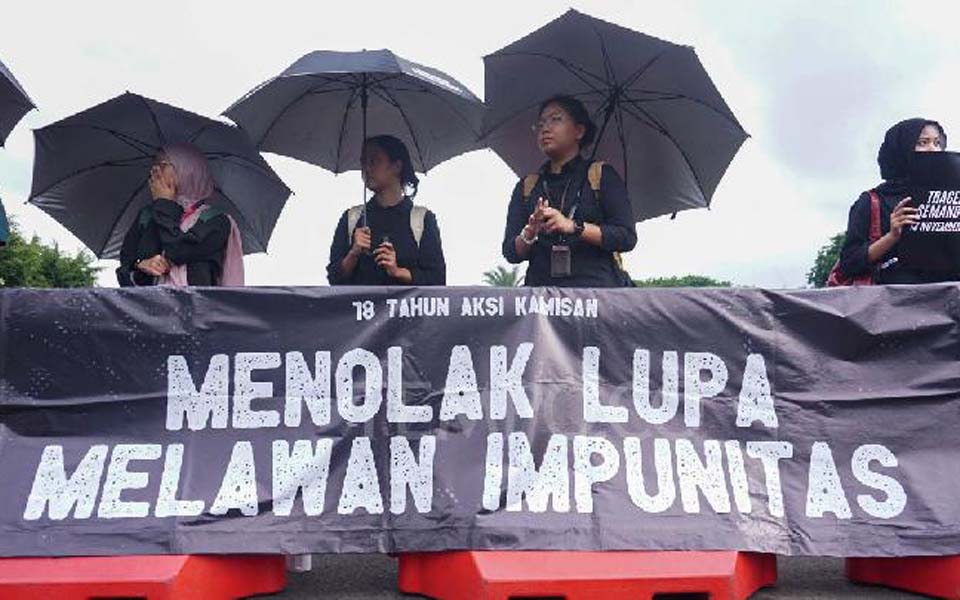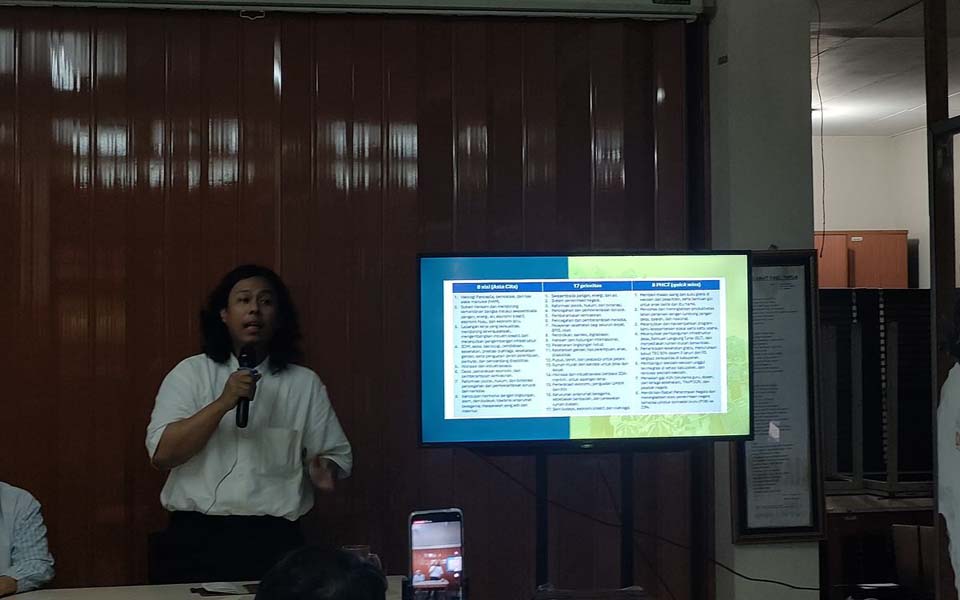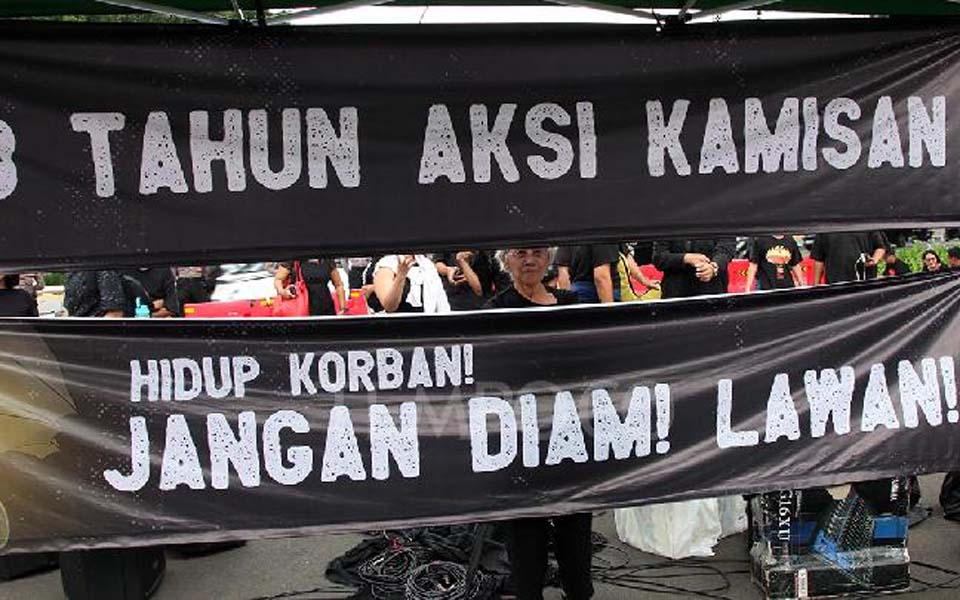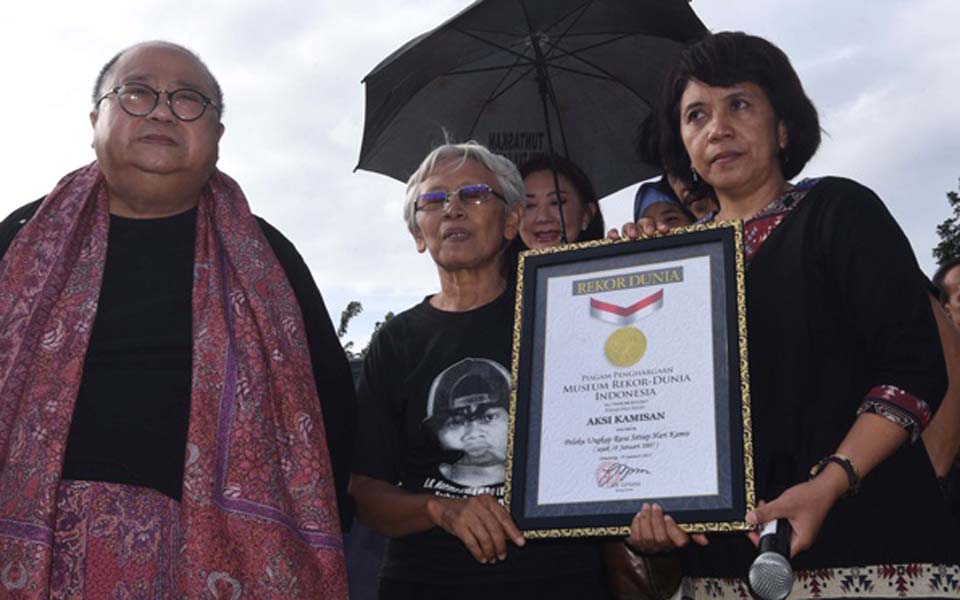Tatang Guritno, Jakarta – The Commission for Missing Persons and Victims of Violence (Kontras) says that the government often sees human rights defenders as enemies of the state. Yet, according to Kontras Coordinator Fatia Maulidiyanti, human rights defenders work to defend society and ensure that the country improves.
"But people who work to fight for human rights are always considered enemies of the state, trouble makers, are silenced, threatened, intimidated and killed", said Maulidiyanti during a virtual discussion organised by the Public Virtue Research Institute and Themis Indonesia on Monday September 6.
A human rights defender, according to Maulidiyanti, does not just refer to those who work in civil society organisations, but also people who defend their human rights and the human rights of those around them.
Maulidiyanti said that over the last five years the level of violence against human rights defenders has been quite high, particularly in relation to the management of natural resources.
"Where this is often associated with the agenda of infrastructure development which is a priority for our president at the moment", she said.
According to Maulidiyanti, the many cases of violence against human rights defenders and the public in areas where there is infrastructure development projects shows that there is no continuity between the equality of human rights and the process of development touted by the government.
"They say that the development agenda is to facilitate the public, for society, for the country's advancement", said Maulidiyanti. "[But] the irony of this is that in reality the ones who are made to suffer are the people themselves", she said.
Maulidiyanti asserted that violence against human rights defenders will continue to occur as long as the 2004 assassination of renewed human rights defender Munir Said Thalib remains unsolved.
One of the things that could be done by the government, according to Maulidiyanti, is to reveal the results of the Fact Finding Team (TPF) into Munir's murder to the public.
In Maulidiyanti's view, if the facts surrounding Munir's murder are not made transparent, it will show that the government has never been serious about resolving the case.
"It also reflects [the fact] that the government is afraid and reluctant to resolve it because if the many gross human rights violations (are resolved) it will sacrifice political stability, because many of the people involved are still in the administration", she said.
Human rights activist Munir died during a flight from Jakarta to the Netherlands via Singapore on September 7, 2004. It is suspected that he died two hours after Garuda Indonesia flight GA-974 landed at the Schipol Airport in Amsterdam. The autopsy results found arsenic in his body.
Off-duty Garuda Indonesia pilot Pollycarpus Budihari Priyanto was later tried and found guilty of the murder and sentenced to 14 years in prison. Many however still believe that that the principle actors behind Munir's assassination have yet to be revealed.
Notes
Although Priyanto was convicted of Munir's murder in 2005, the alleged mastermind behind the assassination, former National Intelligence Agency (BIN) deputy Muchdi Purwoprandjono, was later acquitted of all charges. Also implicated in the murder but never investigated was former BIN chief AM Hendropriyono. Hendropriyono, a close ally of Megawati Sukarnoputri – the chairperson of President Joko Widodo's ruling Indonesian Democratic Party of Struggle (PDI-P) – was cited in US diplomatic cables leaked in 2011 as being involved in the planning of Munir's murder. In 2014 Hendropriyono was appointed an advisor to newly elected President Widodo.
Shortly after being elected president in 2004, Susilo Bambang Yudhoyono established an officially sanctioned Fact Finding Team into the murder. In its final report submitted to Yudhoyono in 2005, the team found evidence that Munir's death was a "well-planned conspiracy" and named a number of Garuda executives and BIN officials who should be investigated. These recommendations were never followed up or made public and in 2016 after the Central Information Commission ordered that the report be released to the pubic the government claimed it had mysteriously gone missing prompting allegations that it was deliberately misplaced by the government.
[Translated by James Balowski. The original title of the article was "Kontras: Pembela HAM Sering Dianggap Musuh Negara".]






